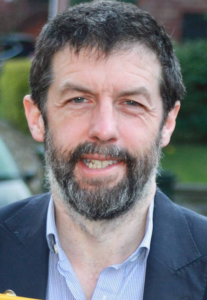Councillors in Newcastle have voted in favour of pulling out of a controversial waste incinerator project.
City politicians voted at a full council meeting on Wednesday night in support of ending Newcastle’s involvement with the Tees Valley Energy Recovery Facility (TVERF), which is due to be built at the Teesworks site in Grangetown, Redcar.
However, it appears unlikely that Newcastle City Council’s Labour leadership will agree to the request to withdraw from the £2.1 billion project, despite the Liberal Democrat-led motion passing by the tightest possible margin.
There have been concerns for years about the cost and pollution impact of the rubbish burner, which will take up to 450,000 tonnes of waste every year from seven North East councils on a contract that could run for up to 40 years.
And there were huge cheers from both the opposition benches in Newcastle Civic Centre and anti-incinerator campaigners in the public gallery as city councillors backed Liberal Democrat Gareth Kane’s motion calling for the city’s withdrawal from the scheme.

Cllr Kane said that incineration is now the “dirtiest form of energy production in this country” and that the TVERF could lock the council into a “feed the beast” mentality for decades to come, at the expense of recycling.
Newcastle’s recycling rate is just 26%, well below the national average of 44%, and Cllr Kane said that there was “no way” the city could hit the UK government target of recycling at least 65% of waste by 2035 if the TVERF goes ahead.
However, the decision to pull out of the incinerator partnership ultimately rests with the council’s Labour cabinet.
Wednesday night’s vote is not binding and the Local Democracy Reporting Service understands that the cabinet is unlikely to agree to the withdrawal request.
Deputy council leader Alex Hay insisted that the council was committed to reduce, reuse, and recycle more, but that some residual waste would always remain and had to be disposed of somehow.
The TVERF is scheduled to open in 2029 and it is said that it would generate enough electricity to power 60,000 homes, as well as saving nearly 100,000 tonnes of greenhouse gas emissions per year compared to landfill.
Cllr Hay claimed that withdrawing now would leave the council exposed to costs of up to £30 million.
Labour council leader Karen Kilgour added that the TVERF was not a “hare-brained scheme dreamed up overnight” and that pulling out after years of planning was “not a serious or credible option” and risked “catastrophic” consequences for the civic centre’s finances.

Image: Newcastle Council
Liberal Democrat opposition leader Colin Ferguson alleged that Labour’s cost warnings were “deeply dishonest” and said that entering such a lengthy waste contract would prevent the council taking advantage of new technologies that emerge over the next five to 10 years, let alone four decades.
The vote on Cllr Kane’s motion was tied – with all members of Labour’s minority council administration present voting against it and every councillor sat on the opposition benches voting in support, aside from the abstention of ex-council leader Nick Kemp.
Lord mayor Henry Gallagher, a Liberal Democrat, then took the unusual step of using his casting vote in support of the motion.
Cllr Hay said afterwards: “They [the Lib Dems] have jeopardised the city’s finances, put long-term waste services at risk for short-term political gain, and damaged Newcastle’s reputation with partners and investors. At a time when stability and strong leadership are needed, they have chosen to destabilise the council and put essential services at risk.”
Viridor was recently confirmed as the chosen operator for the TVERF, while a permit for the site has also been granted by the Environment Agency.




